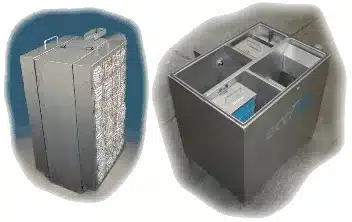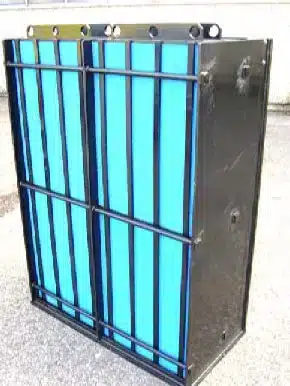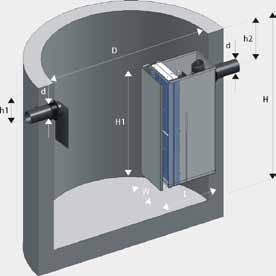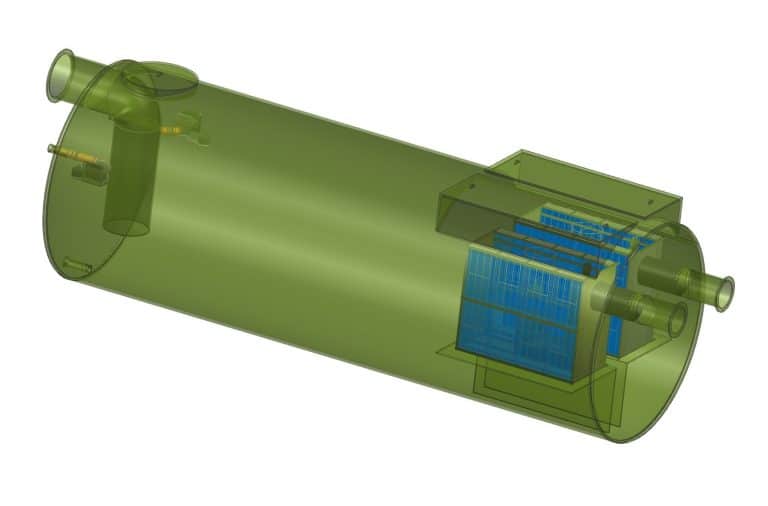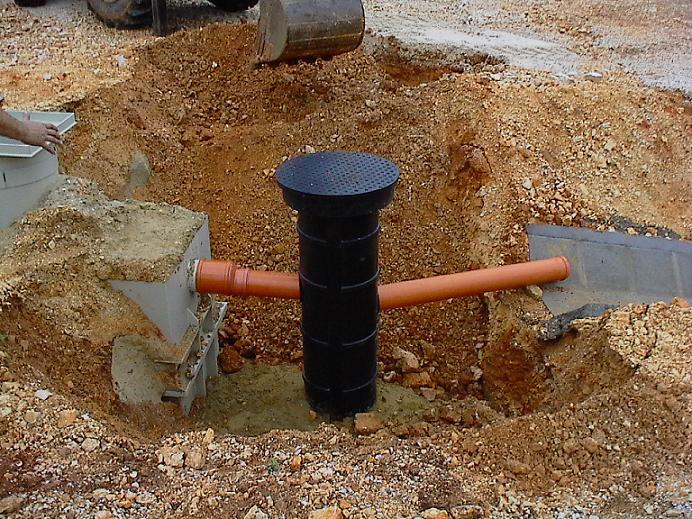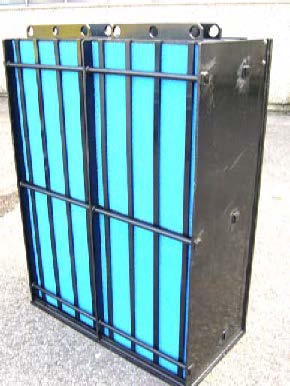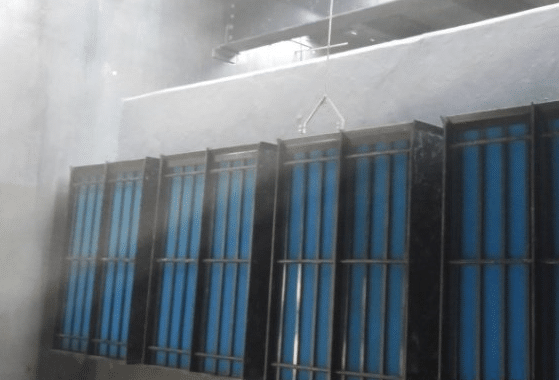Ever wondered how industries keep our rivers clean despite their big operations? The secret is underground. Mississippi Below Ground OWS systems are key in fighting water pollution. They work hard to separate oil from water, keeping our water clean.
These systems are vital for protecting the environment and managing water in Mississippi. As cities grow and industries expand, we need better ways to treat water. Freytech Inc. leads with advanced technology that’s changing how we separate oil and water.
Freytech Inc.’s systems ensure water is very clean, at just 5 PPM. This is way better than the North American limit of 10 PPM. Their technology can even remove trace amounts of oil, getting down to 0.1 PPM.
Key Takeaways
- Mississippi Below Ground OWS systems are crucial for water pollution control
- Freytech Inc. offers advanced oil water separator technology
- Below Ground Oil Water Separators exceed North American discharge limits
- Enhanced coalescing technology separates both free and emulsified oil
- OWS systems effectively treat various hydrocarbons, including motor oil and jet fuel
Understanding Below Ground Oil Water Separators in Mississippi
Below Ground OWS systems are key in Mississippi for protecting the environment. They help manage wastewater from industries and cities. This stops harmful pollutants from getting into waterways.
Environmental Protection Significance
Oil water separators are vital for Mississippi’s ecosystems. They take out oil and other pollutants from wastewater. This keeps rivers, lakes, and groundwater clean.
This is crucial for good water quality and safe habitats for aquatic life.
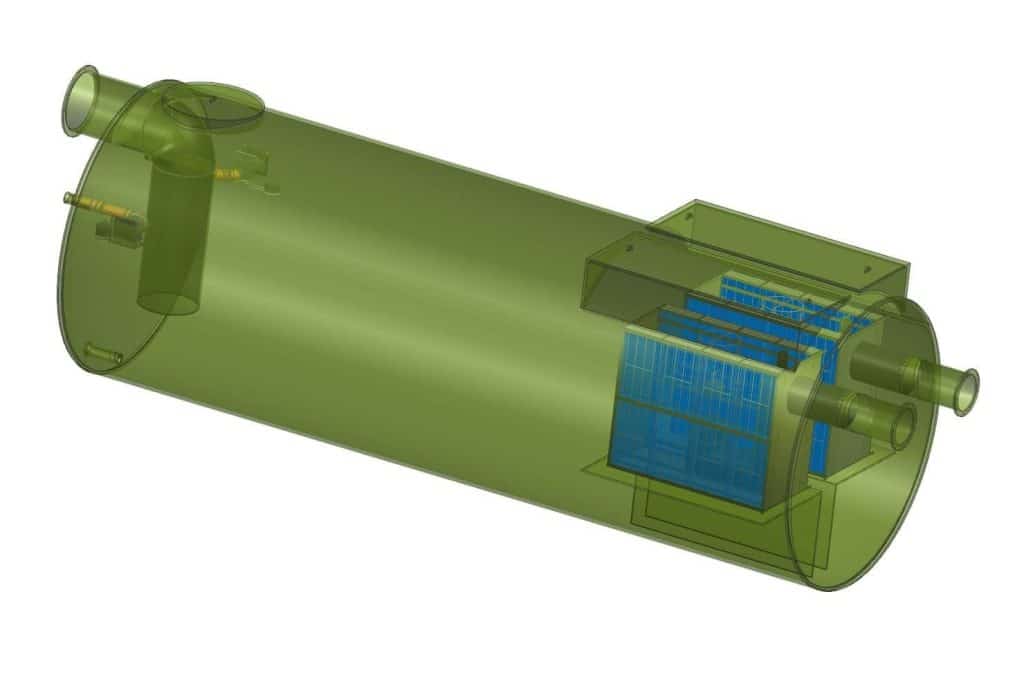
Mississippi’s Regulatory Landscape
Businesses in Mississippi must follow strict rules. The state has limits on hydrocarbon discharges of 10 PPM. Companies must meet these standards to avoid fines and protect the environment.
Regular checks and upkeep of OWS systems are important. This helps companies stay in line with the rules.
Advanced Technology Solutions
Freytech Inc. offers top-notch OWS technology for Mississippi businesses. Their systems go beyond the standard limits, achieving 5 PPM separation efficiency. The advanced coalescing technology can split both free and emulsified oil, reaching 0.1 PPM efficiency.
This technology lets companies do better than the rules require. It also helps protect Mississippi’s water resources.
The Impact of Mississippi River on Gulf of Mexico’s Dead Zone
The Mississippi River is key to the Gulf of Mexico Dead Zone. This area of low oxygen stretches across thousands of square miles. Its size changes every year, reaching nearly 7,000 square miles recently, making it the 8th largest on record.
Nutrient pollution from the Mississippi River causes the Dead Zone. Nutrient-rich water from the river leads to too much algae growth. When this algae dies and sinks, bacteria eat it, taking oxygen from the water. This makes a hypoxic zone where many marine animals can’t survive.
The Dead Zone greatly affects marine ecosystems. Many animals that can’t swim or swim weakly die in these low-oxygen areas. Fish and marine mammals move to deeper waters, upsetting the balance of the Gulf’s ecosystem. This can harm the region’s biodiversity and fishing industry.
To fix the Gulf of Mexico Dead Zone, we must reduce nutrient pollution. We need to cut down on runoff from farms and cities along the Mississippi River. By using sustainable practices and better water management, we can lessen this big environmental problem.
Mississippi Below Ground OWS: Applications and Benefits
Below ground oil water separators (OWS) are key in Mississippi’s fight against pollution. They bring many benefits across different industries and places.
Industrial Facilities and Vehicle Maintenance
OWS are vital for treating industrial wastewater. They handle oily water from manufacturing and vehicle maintenance. The OilTrooper SOCMP and CMP models have special parts that separate oil and water well.
Stormwater Management and Pollution Prevention
OWS also play a big role in managing stormwater. They catch oil and pollutants before they get into waterways. The CMPF model is great for handling runoff from parking lots and other hard surfaces. It helps stop pollution.
Cost-effective Solutions for Environmental Compliance
OWS are a budget-friendly way to follow environmental laws in Mississippi. The AQS model comes in single or double-wall steel basins, fitting different needs. These systems help companies meet legal standards and save money over time. They are a wise pick for keeping the environment safe.
Groundwater Monitoring and Subsurface Investigations in Mississippi
Mississippi’s environmental management heavily depends on monitoring groundwater and studying the subsurface. These efforts check the quality of soil, sediment, surface water, and groundwater. Experts test for contaminants like metals, volatile organic compounds, and petroleum hydrocarbons.
Hydrogeology is key to understanding how water moves under the earth. Scientists study the earth’s layers and how they hold water. This helps predict where groundwater flows and where pollutants might go. Knowing this is crucial for cleaning up and keeping an eye on the environment.
Contaminant transport modeling is a big help in these studies. It predicts how pollutants move underground. By seeing how pollutants act, experts can figure out the risks to people and nature. This guides cleanup and safety steps.
Environmental site assessments and aquifer characterization are important too. They give info on what’s under the ground. This helps spot pollution sources and see how widespread it is. With this info, Mississippi can make better plans for cleaning up and keeping an eye on its water.
Case Study: Lake Martha Landfill Site Investigation
The Lake Martha Landfill, also known as the “Paper Landfill,” is a key example of why we need environmental site assessments. It was open from 1968 to 1985 and took in many types of waste like cardboard, brush, and household trash.
Historical Background and Waste Disposal Practices
At Lake Martha Landfill, people dumped waste without permission. This included things like car engines and paint cans. This shows how important it is to follow the rules for handling waste.
Environmental Assessment Findings
From 1992 to 2009, several studies found high levels of harmful substances in the soil, water, and groundwater. Things like arsenic and benzo(a)pyrene were found in amounts above what’s safe. This made it clear we needed to fix the problem fast.
Remediation Strategies and Long-Term Monitoring
To fix Lake Martha Landfill, we’re making the landfill cover more stable and setting rules for how the land can be used. We’re also checking the groundwater regularly and installing wells to keep the waste in place. These steps help us follow the rules and protect the area for the future.
These separators are crucial in storm water systems. They process runoff to meet the US EPA’s Clean Water Act standards. With effective oily water treatment, facilities protect the environment and dodge big fines.

